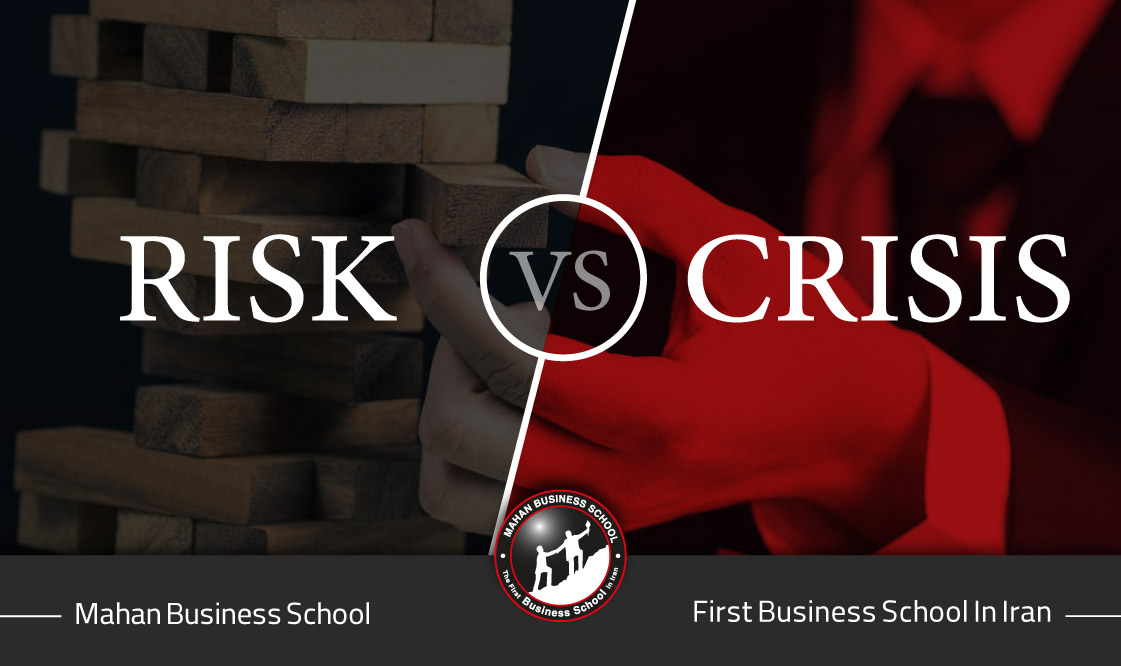The MBA program, short for Master of Business Administration, is one of the most popular postgraduate degrees worldwide. Its primary goal is to train managers and entrepreneurs who can lead organizations and businesses with a comprehensive and forward-looking perspective.
In this program, students gain expertise in areas such as strategic planning, human resource management, financial analysis, marketing, negotiation, and decision-making in complex situations. Most importantly, the training goes beyond theory—students also learn how to apply these concepts in real-world practice.
Imagine you are a successful civil engineer who has worked on various construction projects for years. Despite your extensive experience, when you decide to start your own company, you face numerous challenges. Managing costs, acquiring new clients, handling legal contracts, and even motivating your employees are all issues you likely never learned about at university.
If you enroll in an MBA program, over the course of a year, you will learn how to create a detailed business plan, make quick and effective decisions during crises, and attract more clients using modern marketing strategies. A few months after completing the program, you will have the knowledge needed to start a business, tackle challenges and crises, and increase profitability. These are just some of the practical applications and benefits of participating in an MBA program.
This example illustrates that an MBA is more than just a degree—it is a set of skills that can transform an individual’s professional path. The MBA serves as a bridge between the theoretical knowledge gained in the classroom and the challenging realities of the business world.

In the early 20th century, the global economy was growing at an unprecedented pace. Factories were expanding, markets were widening, and competition among companies was becoming more intense. Amidst this bustling environment, a major problem emerged: many managers had experience, but they lacked the scientific knowledge and tools needed to run complex organizations effectively.
In 1908, Harvard University in the United States decided to address this gap. They designed a new program aimed at training managers who would possess both practical experience and scientific knowledge of management. This program was called the Master of Business Administration (MBA). At that time, only 33 students attended the classes, but the teaching method was innovative: instead of dry lectures, professors presented real company cases and asked students to think critically and discuss solutions.
A few decades later, the MBA program crossed the borders of the United States and gained recognition in Europe and Asia as well. Universities introduced new specializations, ranging from marketing and finance to human resource management, and later expanded into modern fields such as data analytics and artificial intelligence.
Today, the MBA is more than just an academic program; it is a powerful tool for the professional growth of managers, entrepreneurs, and even specialists in fields such as medicine, technology, and the arts. Over more than a century, the MBA has evolved from a small class in Boston into a global network of programs and specializations, preparing the managers of tomorrow in every corner of the world.

The term MBA is the abbreviation of Master of Business Administration, which translates to «کارشناسی ارشد مدیریت کسبوکار» in Persian. Although the title may seem simple, it embodies over a century of experience and evolution. The word Master indicates a graduate-level, specialized program; Business refers to the broad scope of economic and commercial activities; and Administration represents the art and science of organizing, leading, and making decisions in business.
ChatGPT said:
The combination of these three elements has created a degree designed to develop individuals capable of managing organizations in today’s competitive world with a strategic vision and an operational approach.
The philosophy behind the creation of the MBA program was based on a fundamental need: bridging practical managerial experience with scientific management knowledge. The idea was that leading an organization cannot rely solely on intuition or years of hands-on experience; there must be a structured, teachable, and scientific framework that enables managers to make smart and sustainable decisions in complex situations.
Imagine a person running a home appliance manufacturing plant who has spent years in the technical department. They are highly skilled in their work, but now they must make decisions about investments, market expansion, employee management, and even competition with international brands. Experience alone is not enough in such cases.
The MBA was designed precisely for these situations—to equip managers not only with an understanding of their work but also with skills in market analysis, strategic planning, resource management, and team leadership. From the very beginning, the main goal of the program has been to transform management from “learning on the job” to “purposeful and scientific learning”—knowledge that can be taught to others and applied across any type of business.
Who Should Consider Pursuing an MBA?

ChatGPT said:
An MBA is not designed for everyone, but for those at a pivotal point in their careers who want to make a significant leap, it can be a game-changer.
For example, imagine you are a sales specialist who has worked for years in a company and are now offered the role of managing the sales team. You know the products and clients well, but running a large team, budgeting, and analyzing the market require additional tools.
Or consider a young entrepreneur who has launched a startup. Your idea is excellent, but when it comes to attracting investment or negotiating with international partners, you may feel the need to enhance your managerial knowledge.
Even experienced managers who have spent years in a single domain can benefit from an MBA if they aim to enter international markets or guide their organization in a new direction. In such cases, an MBA can illuminate the path forward.
In summary, pursuing an MBA is suitable for the following individuals:
- In summary, pursuing an MBA is suitable for the following individuals:
- Entrepreneurs who have a business development plan
- Mid-level managers seeking to advance their organizational position
- Individuals aiming to enhance their chances for international career opportunities
The importance of an MBA can be summarized in one sentence: it teaches you how to keep your business standing and moving forward in a constantly changing world.
Imagine you own a clothing manufacturing company. The first few years go smoothly, but suddenly a new competitor with advanced technology enters the market, or an economic crisis causes sales to drop. In such situations, instinctive reactions or decisions made without analysis can be costly. An MBA graduate, however, has learned how to analyze the market, identify opportunities, optimize resources, and even turn a crisis into a launching pad for growth.
An MBA is not just about management; it’s about creating the “big picture.” Instead of getting caught up in daily routines, you learn how to anticipate the future and make decisions based on that vision. This is precisely what makes an MBA valuable and impactful worldwide—from boardrooms to small startups.

If we view the 20th century as a vast arena of competition, the MBA was like a wise coach gradually earning its place alongside the champions of this field. The story began in 1908 at Harvard, where a group realized that running a factory or company could no longer rely solely on hands-on experience.
In the following decades, the world became full of challenges—from world wars to economic crises, and later, the whirlwind of globalization. Each crisis made managers realize that even the best ideas could collapse within months without analytical knowledge and a strategic perspective. This is when the MBA grew, developed specialized tracks, and expanded beyond the manufacturing industry: from banking to healthcare, from oil and gas to emerging technologies.
By the end of the 20th century, the MBA was no longer just a simple academic degree; it had become, in a sense, a “global management passport.” Business leaders understood that holding this degree meant being prepared to guide organizations through the unknown and high-risk paths of the future.
In fact, the MBA originated in the United States, expanded to Europe and Asia, and today offers specialized programs in fields such as digital marketing, artificial intelligence, and project management.
اعتبار گواهینامه MBA بیش از آنکه فقط به نام «MBA» بودنش وابسته باشد، به اعتبار مرکز آموزشی صادرکننده آن برمیگردد. در جهان، دانشگاههای مطرحی مثل هاروارد، استنفورد یا اینسید، بهخاطر سابقه و کیفیت آموزشیشان، مدارکی ارائه میدهند که در هر نقطه دنیا شناختهشده و مورد احترام است. این مدارک معمولاً حاصل دورههای دو ساله با محتوای جامع، پروژههای عملی و شبکهسازی گسترده با اساتید و دانشجویان از سراسر دنیاست.
However, the MBA is not limited to universities. Many business schools offer one-year or even shorter programs designed with a focus on practical skills. These courses are highly effective for working managers or entrepreneurs who do not have the opportunity to attend long-term university programs. In Iran, a notable example of this approach is Mahan Business School, which offers one-year MBA programs with practical content tailored to the needs of both the domestic and global markets.
Ultimately, the credibility of an MBA degree depends on three factors: the educational standing of the institution at the national or international level, the quality of the curriculum, and your ability to apply what you have learned in practice. Even a degree from the most prestigious university will remain only on paper if it is not accompanied by real skills; conversely, even a short but reputable program, when combined with smart implementation, can transform your professional path.
According to Harvard Business School, an MBA is more than just an academic degree—it is a gateway to acquiring real managerial skills. In this program, you gain deep and practical experience in areas such as data analysis for decision-making, developing marketing strategies, financial management, and effective team interaction.
The exciting part is that alongside learning the “theory,” you engage in problem-solving exercises and real case studies—exactly what you need in everyday business. But that’s not all. The network you build during this journey—from classmates and international professors to influential alumni—can open doors to opportunities that would remain closed without an MBA. An MBA can serve as your launchpad to managerial positions, accelerate your credibility, and significantly increase your earning potential.
After completing this program, you are expected to:
- Analyze complex business situations
- Make decisions with a strategic perspective
- Lead and manage a team
Through the consulting pathway, you will understand the outcomes you can achieve by completing the MBA program at Mahan Business School.
Short or flexible MBA programs, as described in articles and educational programs by Harvard Business Review, are designed for individuals who want to acquire key management, leadership, and high-level decision-making skills without committing to a full two-year program. These courses are generally shorter, more focused, and flexible, allowing participants to gain up-to-date knowledge in areas such as strategy, innovation, finance, marketing, or digital transformation in a condensed and practical format.
Their main advantage is that they enable managers, entrepreneurs, and even professionals considering a career shift to strengthen their analytical and leadership abilities without taking extended time away from work, quickly translating these skills into tangible business results.
Simply put, these programs act like a “fast-track elevator” for career advancement: they provide a condensed version of all the analytical and practical tools of a full MBA, but with reduced time, lower costs, and flexibility that fits today’s professional life.
A bachelor’s degree (in any field)
Several years of work experience
Basic to intermediate proficiency in English
MBA is More Than a Degree
An MBA is not just an academic qualification; it is a strategic tool for building and strengthening both personal and organizational brands.
On a personal level, completing an MBA enhances professional identity and positions an individual as an authority in their field. This recognition naturally expands networks and attracts valuable career opportunities and collaborations.
On an organizational level, having leaders or team members with MBA experience sends a clear message to the market and stakeholders. Grounded in up-to-date knowledge, rigorous analysis, and advanced decision-making skills, an MBA-driven approach boosts brand credibility, inspires trust among clients and investors, and creates a distinct identity for the organization within its competitive landscape.
رهبران بزرگ برای رشد فردی و سازمانی خود، همواره از آموزشهای نوین بهره گرفتهاند؛ یکی از منابع معتبر در این زمینه بهترین مدارس کسب و کار دنیا است.
The MBA Employment Landscape
The MBA Job Market
According to analyses by Harvard Business Review, the MBA job market continues to hold a strong position within the ecosystem of management and leadership roles, retaining its value even during times of economic recession.
MBA graduates, thanks to their blend of analytical skills, strategic decision-making ability, and deep understanding of business models, enjoy a significant competitive advantage compared to their non-MBA peers.
Data shows that their average entry-level salaries are higher, but more importantly, they benefit from faster career progression and the opportunity to play a central role in key organizational projects. This advantage becomes even more pronounced in dynamic markets, particularly when navigating digital transformation challenges or adapting to emerging economic models.
Evolving Nature of the MBA Job Market
In recent years, the nature of the MBA job market has been shifting. Career opportunities for graduates are no longer limited to large corporations or traditional career paths. The rise of the platform economy, along with the expansion of freelance projects and startups, has opened up new horizons.
In this space, the management expertise, strong networks, and innovative mindset of MBA graduates can fuel the rapid growth of ideas and businesses. In other words, the MBA is no longer just a passport to prestigious positions—it has become a powerful tool for creating unique career paths in today’s economy.
The MBA Job Market in Iran
the MBA Job Market in Iran: A Transformative Shift
In recent years, the MBA job market in Iran has been undergoing a rapid transformation. On the one hand, many private companies and organizations have realized that in order to navigate challenging and highly competitive conditions, they need managers who can keep pace with technological and market shifts, put innovative ideas into action, and lead teams effectively in unpredictable situations.
This trend has created new opportunities in areas such as strategic planning, digital marketing, financial management, and business consulting. As a result, the MBA job landscape in Iran is not only expanding but also becoming increasingly specialized.
Entrepreneurship and Emerging Fields for MBA Graduates in Iran
On the other hand, economic pressures and international constraints have shifted the career paths of many MBA graduates toward entrepreneurship and the creation of small and medium-sized enterprises. Sectors such as healthcare, technology, online services, clean energy, and tourism are currently among the most dynamic arenas for applying MBA-driven management skills.
However, theoretical knowledge alone is not enough. True success comes when managers are able to build a subtle and practical bridge between global best practices and the cultural and economic realities of Iran.
Conclusion
What is an MBA?
An MBA, or Master of Business Administration, is far more than a traditional academic program; it is a unique blend of academic knowledge and real-world practice that prepares managers for complex, high-stakes decision-making. First introduced in 1908 at Harvard, the MBA was designed to train individuals who could guide organizations toward growth and sustainability with a broad perspective and strategic planning.
Core skills such as market analysis, strategy development, financial and human resource management, modern marketing, and leading teams through crises are integral parts of MBA education. The learning approach emphasizes hands-on experience and real-world case studies, bridging the gap between classroom theory and business practice.
Today, with a wide range of specializations—from strategy and finance to emerging technologies and sustainable management—the MBA remains one of the most sought-after pathways for managers and entrepreneurs around the world to advance their careers and drive meaningful impact.
T
he True Value of an MBA
The importance of an MBA goes far beyond acquiring specialized knowledge. Its true power lies in building a personal brand, expanding professional networks, and opening new career pathways. Despite global economic shifts, the MBA job market remains vibrant, offering opportunities not only in traditional corporations but also in startups and platform-based economies.
In Iran, the demand for managers who can embrace digital transformation, lead teams with creativity and agility, and turn innovative ideas into action is steadily growing. High-potential sectors such as healthcare, technology, clean energy, and tourism provide fertile ground for MBA graduates to make an impact.
However, lasting success in Iran’s business environment requires more than theoretical knowledge; it depends on integrating modern management practices with the country’s cultural and economic realities. At Mahan Business School, we focus on skill-building rather than degree-seeking, blending practical experience with cutting-edge training—standing by your side on the path to growth and professional advancement.

















